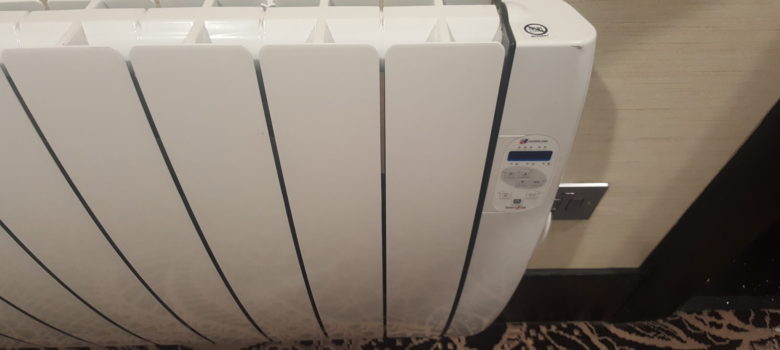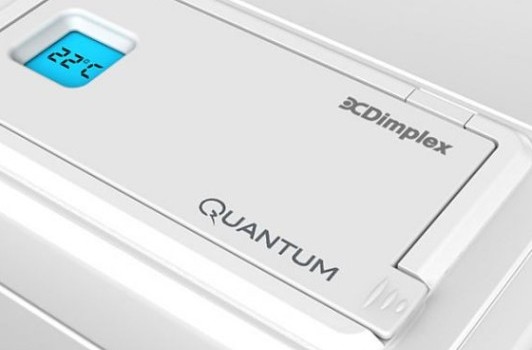
Electric radiators are often the go-to alternative when a gas central heating system isn’t an option, but their running costs in comparison to other forms of heating are often a mystery to people. The question is: are electric radiators cheap to run?
What are electric radiators?
Like radiators as part of a gas central heating system, electric radiators work through convection. They are filled with a thermodynamic fluid which warms up when electricity passes through it. When the fluid expands, it gives off heat through the surface of the radiator. This emits heat into the air around it. The fluid in these convector heaters is usually an oil.
In terms of thermal comfort, electric radiators are as effective as gas central heating, but they are not cheap to run. It is estimated that running costs are up to three and a half times more expensive than heating with an efficient gas boiler and standard radiators.
This may seem confusing, as manufacturers of electric radiators often boast that electricity is 100% efficient. This is true in that all the electrical energy that passes through them is converted to heat energy. However, their overall efficiency is low, just because you get less for your money.
It basically all comes down to the fact that a unit of electricity costs far more than a unit of gas. Rates vary depending on your tariff and supplier, but electricity normally costs around 12p/kWh. In comparison, gas costs around 4p/kWh.
We’ve written before about the costs of electric heating. For detailed calculations, see here.
Are there any benefits of electric radiators?
Unlike radiators powered by gas, electric models normally require no maintenance. Because standard radiators work by circulating hot water, if the supply is restricted, they don’t work properly. This means they need bleeding or balancing from time to time.
Electric radiators have no moving parts, and there is very little that can go wrong as long as the electricity supply isn’t interrupted. This means that when calculating the running cost, you should also factor in maintenance and replacement cost. Electric heaters need to be changed very infrequently, and when they do, that cost is much lower than a new boiler. Boilers need replacing every 12 years or so, and will cost £2,000 to do so. Every person’s requirements will vary, but you can’t discount the fact that electric heating has a lower startup cost and maintenance cost whilst having higher running costs. For smaller properties with less to heat, electric can work out as the best option.
Should I get electric radiators?
It’s pretty hard to recommend electric heating as anything other than a last resort for the vast majority of customers. It may be that you don’t have the option of central heating because your property may be off the gas grid. In this case though, you still have options:
You could look at installing far infrared heating panels, for example. They work through (safe) radiation, rather than conventional space heating, which means that you could keep your home warmer for less money. This could save you money on heating for two reasons:
- You may need to spend less on heating because radiant heat isn’t lost through draughts, unlike convection heating, which warms air.
- You might also need to keep them on for less time, because they continue to warm your house even once you have turned the panels off. With convection heating, once the heat has gone, it’s gone. Radiant heating, on the other hand, warms your walls, floors and furniture, so it will effectively turn your house into a radiator, continuing to throw out heat even after you’ve switched the heating off.
Infrared has the benefit of being lower on running cost, but also much cheaper to install and maintain than gas boilers. So it really makes sense for many customers as an alternative to electric convector heaters.
If you need more information about electric heating, or help with finding an alternative, just get in touch.













I am living in a lodge and I am wanting to know the best way to heat it and the most economical way in which to run the heating.
I have a flat with a very high ceiling which would be the best he interviews
No they bloody aren’t cheap. I had a near £700 electric bill last winter to heat my house, and that’s with new ‘energy efficient’ electric radiators
Does the house feel warm? That cost sounds about right according to this which? article. https://www.which.co.uk/reviews/home-heating-systems/article/home-heating-systems/electric-central-heating (annual cost of electricity subheading).
.
An average UK home uses 12000kwh a year. My gas CH used 8000kwh (£280) to heat my house last year. If I substituted each gas radiator for an electric one of the same wattage I reckon I’d consume about 3200kwh a year (£448). But if I’m not paying for annual boiler service at £90 and gas standing charge at £60 a year, it’s about the same cost. The only unknown for me is how much of the wasted heat from pipes is actually warming the house (so requiring larger heaters)..
Maybe not much of a consulation now, but in future gas prices will have to rise and electricity get cheaper to deal with climate change. Electric heaters are efficient in that they use less energy. The relative unit cost is the problem.
Looking at a bungalow that has electric radiators.
There is no gas in the village, would it be much more economical to fit oil radiators or any other suggestions?
Wow – this webpage is riddled with so many basic errors:
“They are filled with a thermodynamic fluid which warms up when electricity passes through it.” Er, no.
“When the fluid expands, it gives off heat ” No, again
“Infrared has the benefit of being lower on running cost” No – as you point out earlier – all electric heaters are 100% efficient, it’s just that electricity costs more than gas.